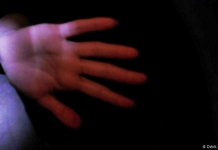
BY IME SORNITO and RUBY P. SILUBRICO
ILOILO City – The Police Regional Office 6 (PRO-6) only has 20 pieces of personal protective equipment (PPE) for policemen enforcing provincial border restrictions being observed in Panay Island against the coronavirus disease 2019 (COVID-9).
Brigadier General Rene Pamuspusan, regional police director, appealed for help most especially from the Department of Health (DOH) Region 6, Regional Disaster Risk Reduction and Management Council (RDRRMC) and local government units (LGUs).
The provincial governments of Iloilo, Antique, Aklan, and Capiz imposed travel restrictions to seal their respective areas from the possible entry of COVID-9. They tasked their respective police provincial forces to guard their borders.
“I hope the RDRRMC can give additional PPEs,” said Pamuspusan.
At present, policemen with no PPEs manning border checkpoints are simply observing social distancing and hand hygiene (using alcohol and hand sanitizers), according to the director.
“I would like ask our personnel, pag nag-conduct sila ng checkpoints they must also safeguard their health,” said Pamuspusan.
According to the World Health Organization (WHO), people can catch COVID-19 from others who have the virus. The disease can spread from person to person through small droplets from the nose or mouth which are spread when a person with COVID-19 coughs or exhales.
The most common symptoms of COVID-19 are fever, tiredness, and dry cough. Some patients may have aches and pains, nasal congestion, runny nose, sore throat or diarrhea. These symptoms are usually mild and begin gradually. Some people become infected but don’t develop any symptoms and don’t feel unwell.
PRO-6 spokesperson Police Lieutenant Colonel Joem Malong said checkpoints were established beginning March 17. Policemen were assisted by personnel from DOH Region 6, local government units concerned, and barangay officials.
“We are checking if drivers observe social distancing,” said Malong.
Temporary holding centers for people were also set up “just in case may makita nga symptoms,” said Malong.
Meanwhile, Pamuspusan reminded his men not to forget also the other campaigns of the Philippine National Police such as against illegal drugs, illegal gambling and fugitives, among others./PN



